Have Anglicans reached a compromise on same-sex marriage?
The Anglican Communion's leader tried to strike a balance between the church's two warring positions. But will it work?

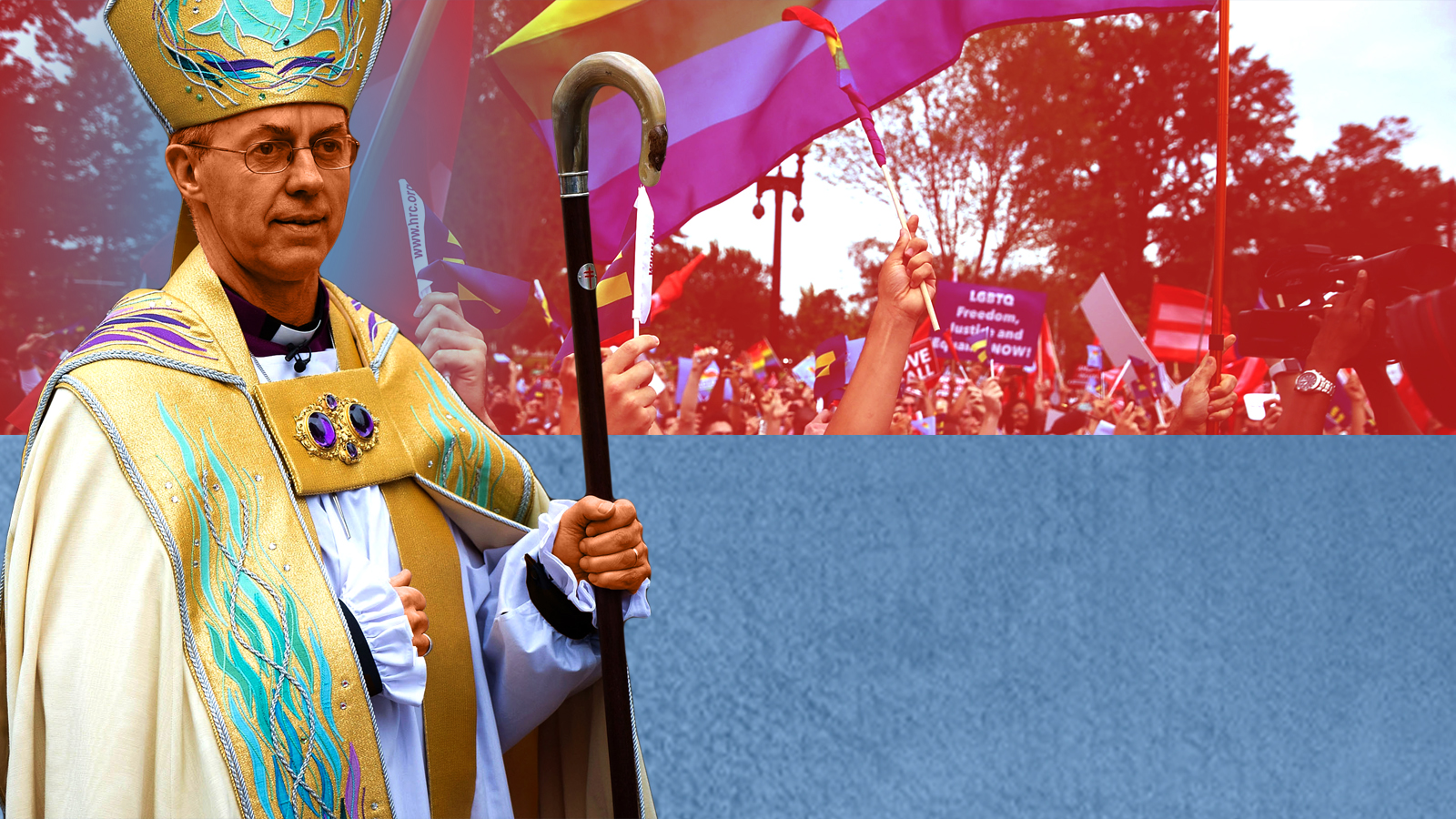
A free daily email with the biggest news stories of the day – and the best features from TheWeek.com
You are now subscribed
Your newsletter sign-up was successful
The Anglican Communion, the world's third-largest Christian body, has been bitterly divided for decades over the issue of same-sex marriage. Last week, the communion's leader may have provided Anglicans with a workable compromise. Here's everything you need to know:
What is the Anglican Communion?
The Anglican Communion is the world's third-largest Christian body after the Roman Catholic and Eastern Orthodox churches, comprising over 85 million members located mostly in England and its former colonies.
Anglicanism has its roots in the arrival of Christianity in Roman Britain and emerged as a separate Christian body when King Henry VIII broke with Rome in 1534. The Protestant reforms that began under Henry; continued under his son, Edward VI; and solidified under his daughter, Elizabeth I, turned Anglicanism into a distinct theological tradition, albeit one characterized by a series of compromises between Protestantism and Catholicism.
The Week
Escape your echo chamber. Get the facts behind the news, plus analysis from multiple perspectives.

Sign up for The Week's Free Newsletters
From our morning news briefing to a weekly Good News Newsletter, get the best of The Week delivered directly to your inbox.
From our morning news briefing to a weekly Good News Newsletter, get the best of The Week delivered directly to your inbox.
For centuries, the Church of England — along with subordinate bodies in Scotland and Ireland — was Anglicanism. That all changed as a result of the American Revolution, which resulted in the creation of the Episcopal Church (TEC), and the expansion of Britain's empire. Gradually, Anglican provinces that had once been ruled from the mother country became self-governing members of a global Anglican Communion.
Member provinces — each led by a "primate" who usually holds the title of archbishop — are distinguished by their continued ties to Canterbury, their use of the Book of Common Prayer, and their episcopal style of church government, in which bishops ordain and oversee priests. Today, a majority of Anglicans live in the Global South.
What is the Lambeth Conference?
The Lambeth Conference is a global gathering of Anglican bishops held every 10 years at Lambeth Palace, the traditional residence of the Archbishop of Canterbury.
Although it lacks the coercive power of a Roman Catholic council, the Lambeth Conference can still be a big deal. Lambeth resolutions have preceded widespread change on a number of social issues.
A free daily email with the biggest news stories of the day – and the best features from TheWeek.com
A resolution adopted by the 1930 Lambeth Conference, for example, made the Anglican Communion the first major Christian body to approve the use of artificial contraceptives by married couples. The 1978 conference recognized "the autonomy" of each province "to make its own decision" about ordaining women. Prior to 1978, only Canada, New Zealand, and the U.S. had ordained female priests; today, women serve as priests in nearly every Anglican province, with only a few holdouts like Nigeria and Pakistan remaining.
This year's Lambeth Conference, which ran from July 26 through Aug. 8 and was attended by more than 650 bishops from 165 countries, was the first since 2008.
What happened at this year's Lambeth Conference?
Last week, as the gathering drew to a close, Archbishop of Canterbury Justin Welby, who is first among equals in the communion, put forward a compromise on the divisive issue of same-sex marriage. Under his proposal, the Anglican Communion would retain its 1998 resolution defining homosexual relations as inherently sinful, but would not take action to punish provinces that deviated from that teaching.
"For the large majority of the Anglican Communion, the traditional understanding of marriage is something that is understood, accepted and without question, not only by Bishops but their entire Church, and the societies in which they live. For them, to question this teaching is unthinkable, and in many countries would make the church a victim of derision, contempt, and even attack," Welby said in the Aug. 2 speech.
"For a minority," he continued, "we can say almost the same. They have not arrived lightly at their ideas that traditional teaching needs to change. They are not careless about scripture. They do not reject Christ. But they have come to a different view on sexuality after long prayer, deep study, and reflection on understandings of human nature. For them, to question this different teaching is unthinkable, and in many countries is making the church a victim of derision, contempt, and even attack."
How'd that go over?
Welby's speech outlining the policy reportedly received a standing ovation from liberal and conservative bishops alike. "[B]y God's grace, this week we have disagreed without hatred," the archbishop said later in the week. The BBC noted that Welby's "focus appeared to be pragmatism" and that "a crisis seemed to have been averted."
Conservative writer Rod Dreher argued in 2018 that attempts at dialogue and coexistence between liberal and conservative factions in the same Christian body seldom last and "are almost always a strategic move by heterodox/liberal people to establish a beachhead from which to dislodge and defeat orthodoxy." The Episcopal Church, for example, originally allowed individual bishops to decide whether to allow same-sex weddings in their dioceses; by 2018, it was mandatory.
In addition to allowing the two perspectives on Christian sexual morality to coexist, Welby also took steps to further normalize the acceptance of same-sex marriage within Anglicanism: This year's Lambeth Conference was the first to invite married gay and lesbian bishops and their same-sex partners. But while Welby "may feel that he has made a significant compromise by saying national churches choosing to conduct same-sex marriages will not be sanctioned," added the BBC, "… here at home, even just by entertaining and reaffirming a position that allows gay people to be viewed unequally, as he did at this conference, he risks doing precisely what he says should be avoided."
Indeed, not everyone was pleased. British-Danish author, atheist, and former Great British Bake Off co-host Sandi Toksvig penned an open letter to Welby accusing the primate of endangering the lives of gay and trans people by not showing them the "love" that is "supposed to be at the core of what you do." Others likewise found Welby's attempt at a compromise out-of-touch: "It's no wonder that its churches are empty and those who are there have one foot in the grave," one letter-writer told The Guardian. "Young people are increasingly inclusive and tolerant of others."
Anglicanism may have "one foot in the grave" in Europe — where membership declined by more than 4 million between 1970 and 2015 — and in North America, where the number of Anglicans fell by nearly half despite strong population growth in the U.S. and Canada. But it's exploding in more traditional countries. Membership in Africa's Anglican churches spiked from less than 8 million to almost 57 million during the same period, growing significantly faster than the continent's overall population.
How has the Anglican Communion previously handled controversies over homosexuality?
At the 1998 Lambeth Conference, conservative bishops from Africa outvoted their liberal British and American colleagues to pass a resolution declaring that "homosexual practice" was "incompatible with Scripture" and advising against "the legitimizing or blessing of same-sex unions." In 2008, an attempt to revise that resolution failed; global Anglicanism's center of gravity had shifted to the developing world.
Nevertheless, liberal provinces persisted. In 2003, the Episcopal Church consecrated an openly partnered gay bishop and in 2015, altered its definition of marriage to include same-sex couples. The communion's primates responded by sanctioning TEC. For three years, the province's representatives were banned from representing the Anglican Communion "on ecumenical and interfaith bodies" and prohibited from voting "on any issues pertaining to doctrine or polity" while "participating in the internal bodies" of the communion.
Against the backdrop of these disputes, Welby — who became archbishop in 2013 — postponed the Lambeth Conference scheduled for 2018 until he could be sure he wouldn't face widespread boycotts. As it turns out, he faced some boycotts anyway. The primates of Nigeria and Uganda, which have the second- and third-largest number of baptized Anglicans after England itself, skipped Lambeth, as did the archbishop of Rwanda.
CORRECTION: An earlier version of this article mistakenly listed Rwanda (rather than Uganda) as the third most populous Anglican province. We regret the error.
Grayson Quay was the weekend editor at TheWeek.com. His writing has also been published in National Review, the Pittsburgh Post-Gazette, Modern Age, The American Conservative, The Spectator World, and other outlets. Grayson earned his M.A. from Georgetown University in 2019.
-
 Local elections 2026: where are they and who is expected to win?
Local elections 2026: where are they and who is expected to win?The Explainer Labour is braced for heavy losses and U-turn on postponing some council elections hasn’t helped the party’s prospects
-
 6 of the world’s most accessible destinations
6 of the world’s most accessible destinationsThe Week Recommends Experience all of Berlin, Singapore and Sydney
-
 How the FCC’s ‘equal time’ rule works
How the FCC’s ‘equal time’ rule worksIn the Spotlight The law is at the heart of the Colbert-CBS conflict
-
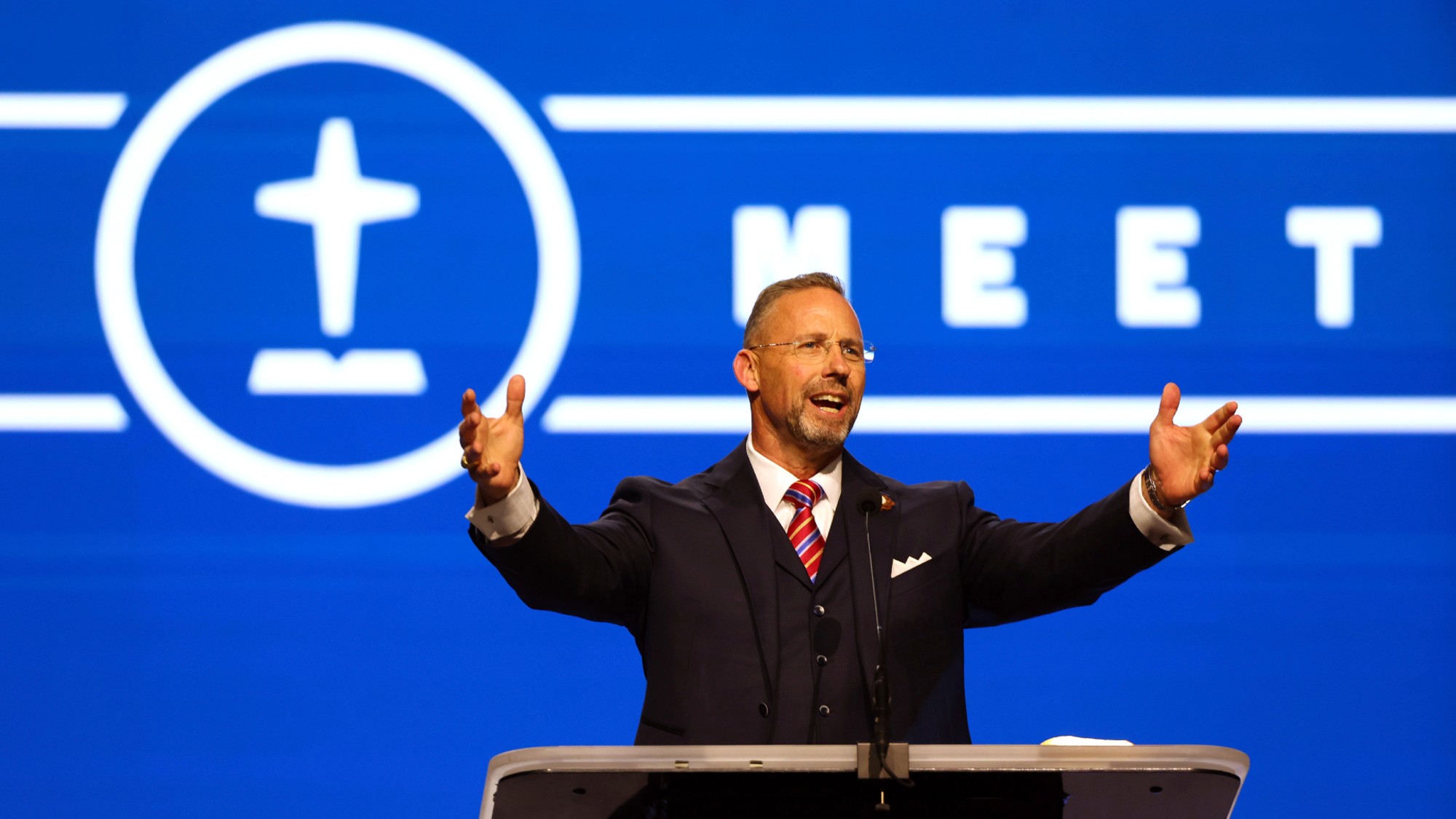 Southern Baptists lay out their political road map
Southern Baptists lay out their political road mapThe Explainer The Southern Baptist Convention held major votes on same-sex marriage, pornography and more
-
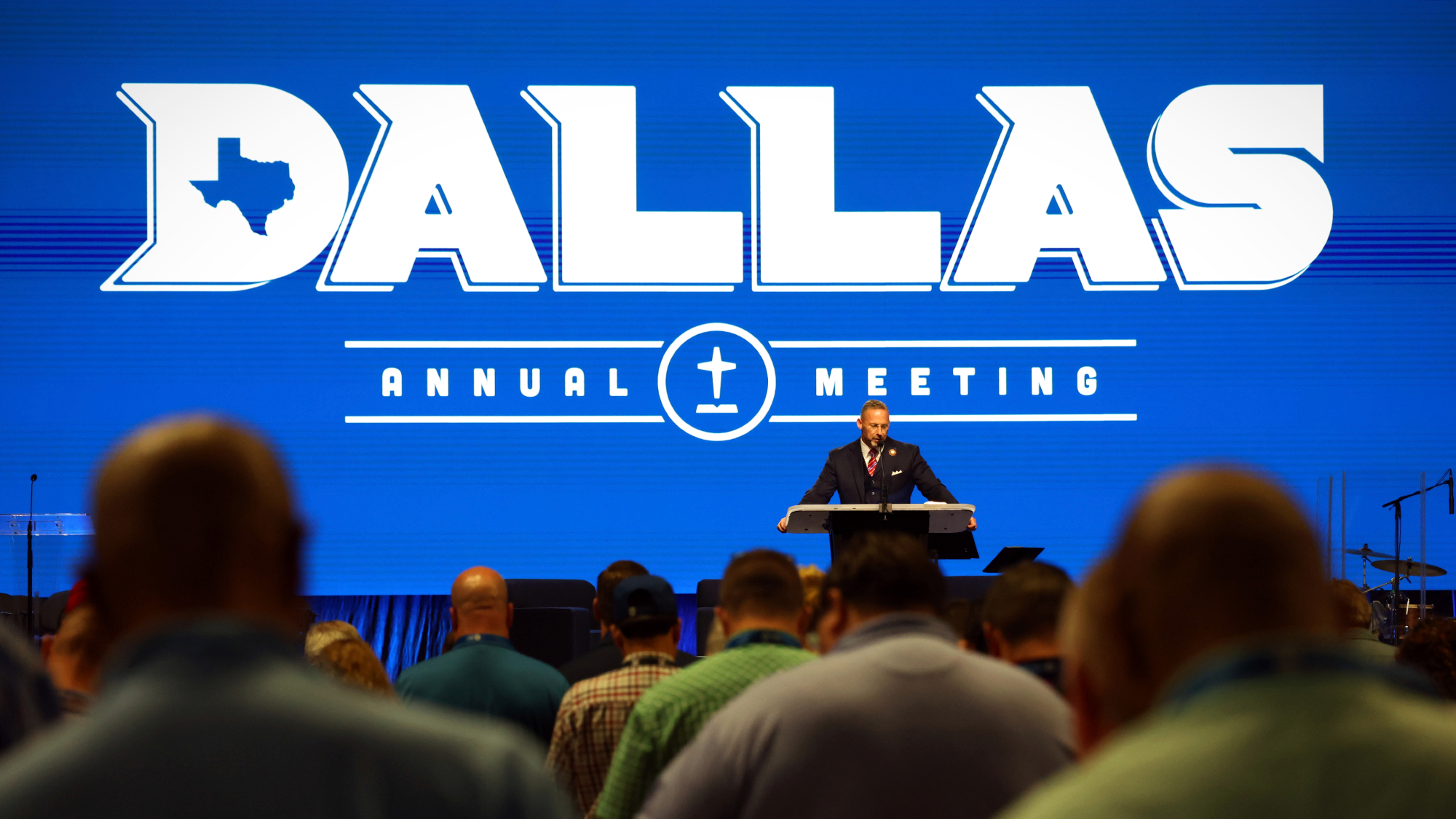 Southern Baptists endorse gay marriage ban
Southern Baptists endorse gay marriage banSpeed Read The largest US Protestant denomination voted to ban same-sex marriage and pornography at their national meeting
-
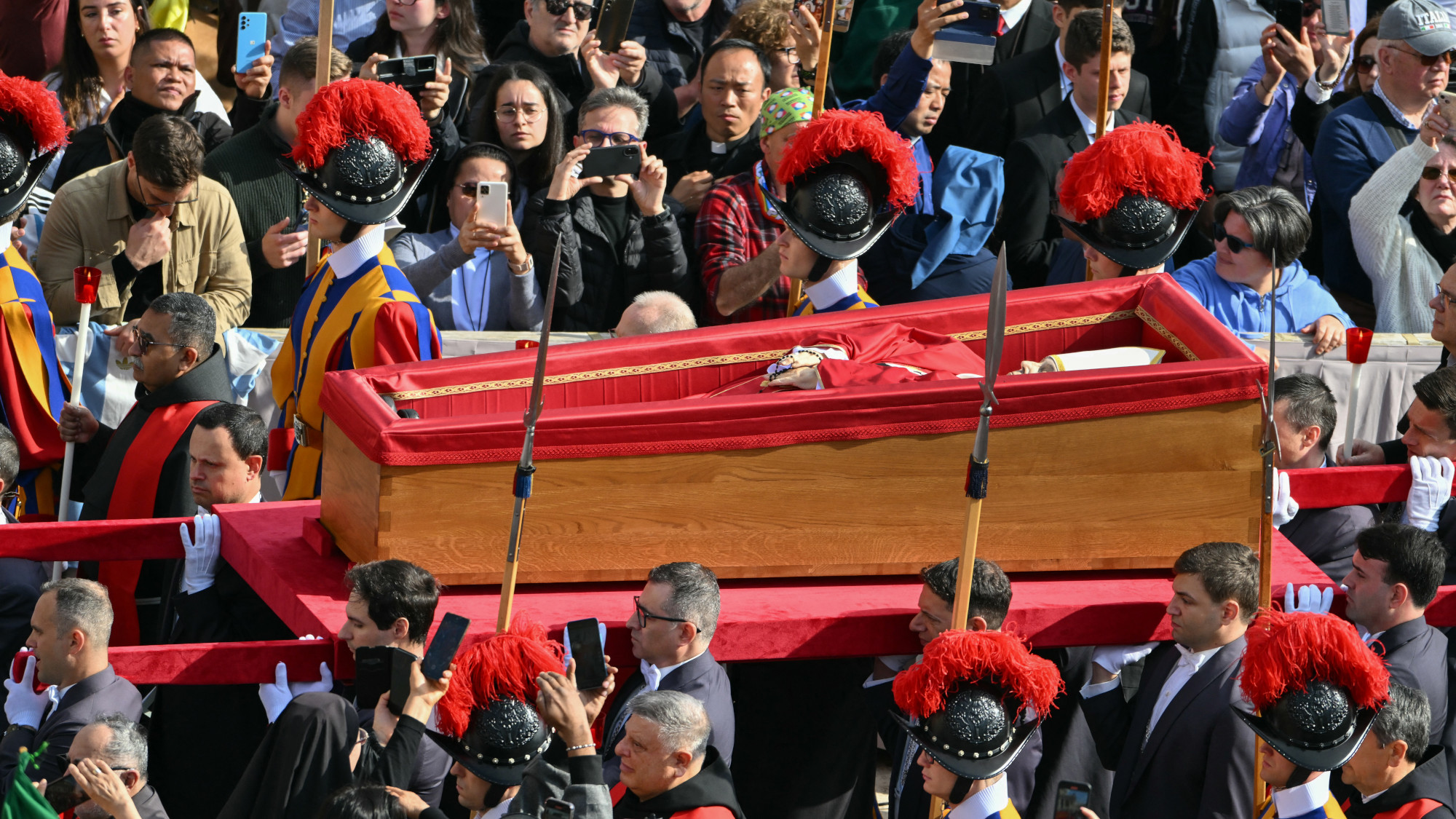 Millions mourn as Vatican prepares for transition
Millions mourn as Vatican prepares for transitionFeature Pope Francis, the pontiff who challenged tradition, leaves the Catholic Church at a crossroad to choose his successor
-
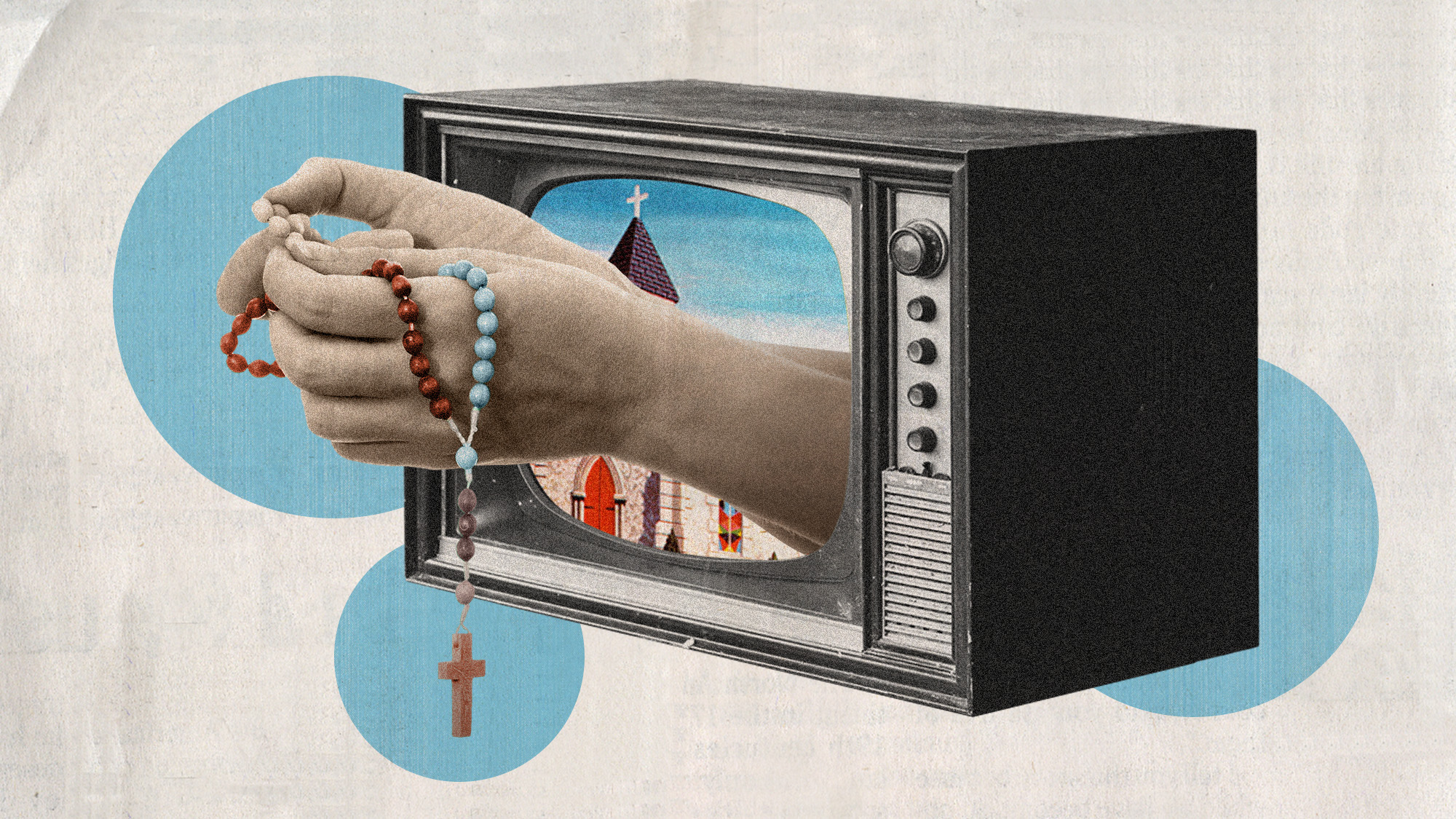 Christian dramas are having a moment
Christian dramas are having a momentUnder The Radar Biblical stories are being retold as 'bingeable' seven-season shows
-
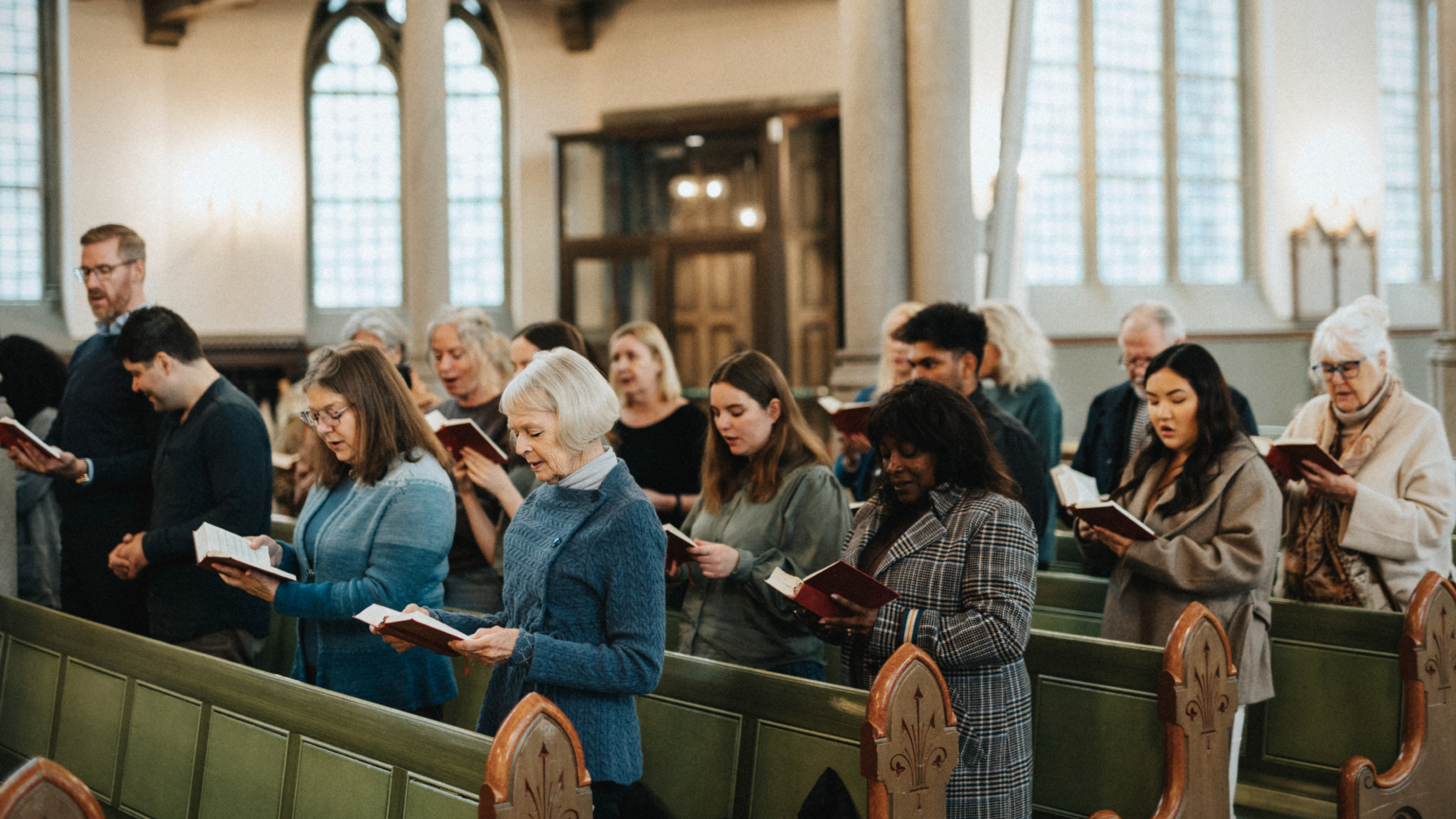 US Christianity's long decline has halted, Pew finds
US Christianity's long decline has halted, Pew findsSpeed Read 62% of Americans call themselves Christian, a population that has been 'relatively stable' for the past five years
-
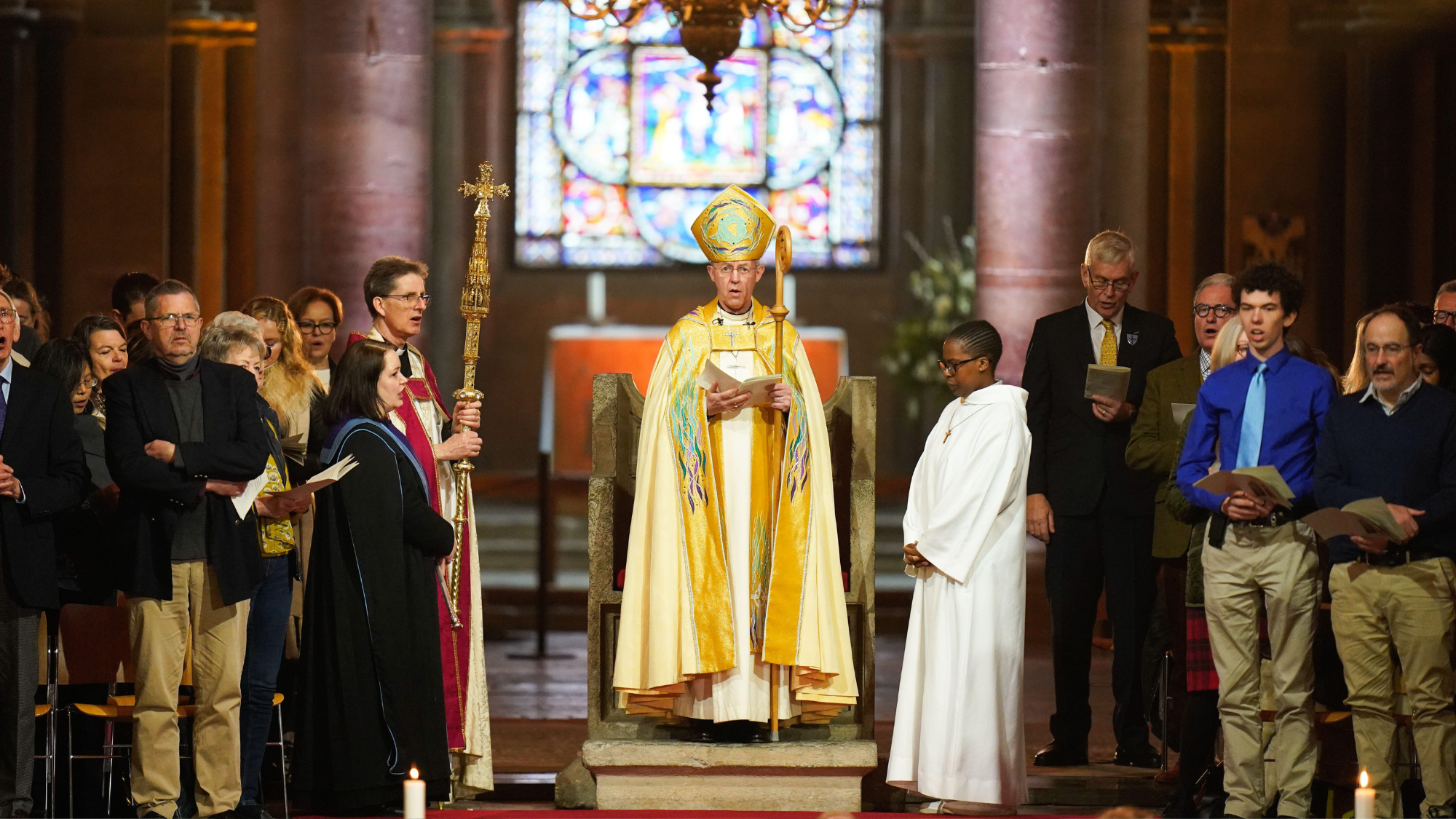 The Church of England's legacy of slavery
The Church of England's legacy of slaveryThe Explainer Should the CofE offer financial redress for its involvement in the transatlantic slave trade?
-
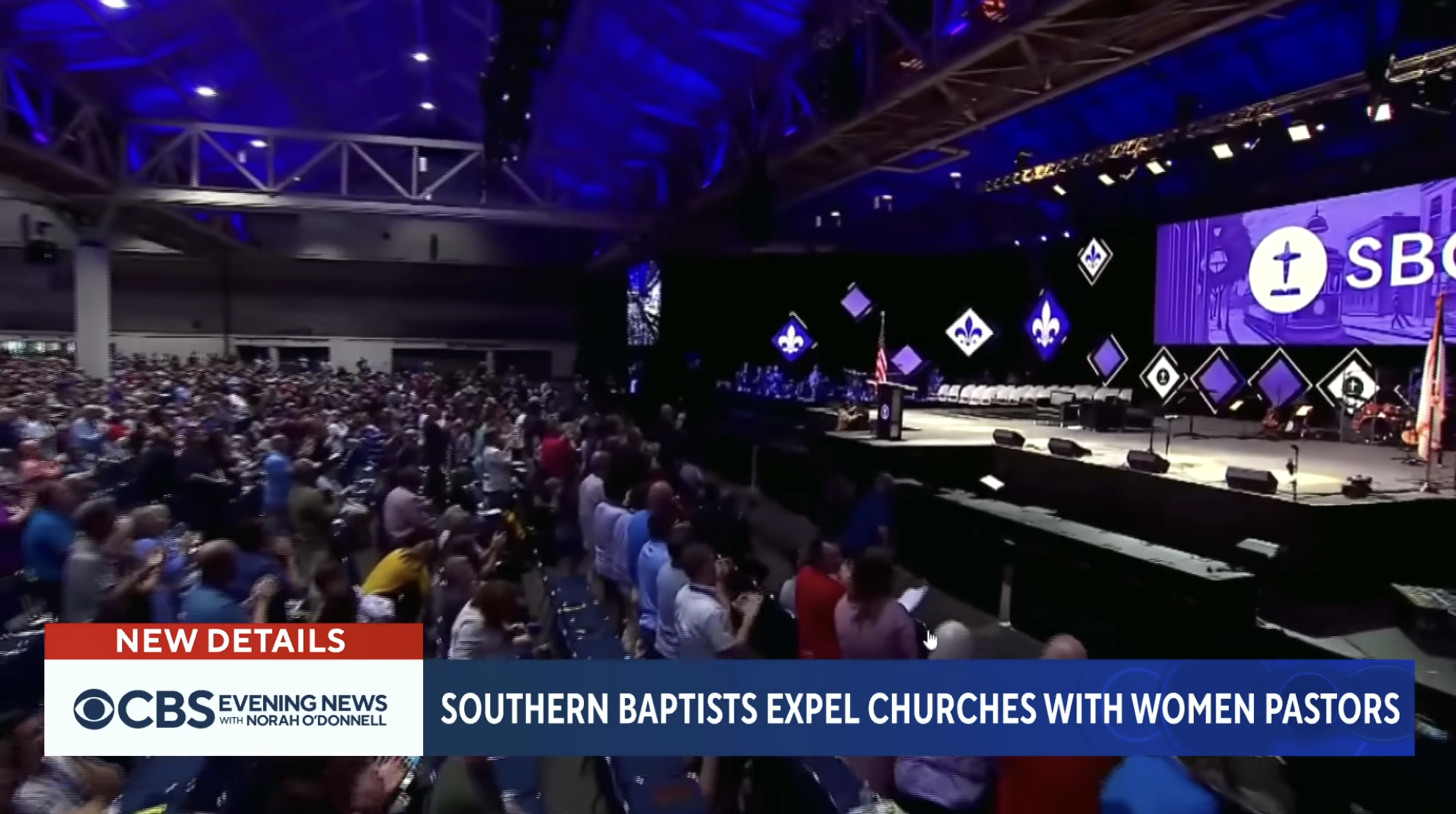 Southern Baptists expel Saddleback, 2nd church over female pastors, approve further clampdown
Southern Baptists expel Saddleback, 2nd church over female pastors, approve further clampdownSpeed Read
-
 Hidden Bible chapter found after 1,500 years
Hidden Bible chapter found after 1,500 yearsSpeed Read New text offers a ‘unique gateway’ into early translations of the Bible, researchers say
